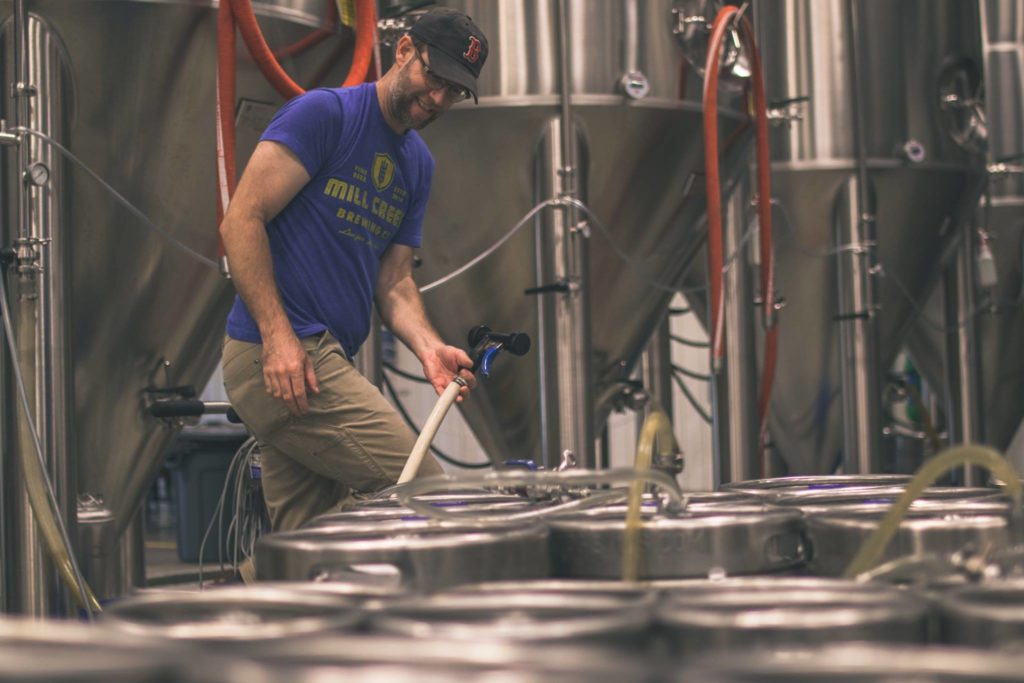Standard Operating Procedures (SOPs): a must for craft breweries.
An SOP is a plan and procedure document with step-by-step instructions to help employees carry out routine operations. In the crowded craft beer market, having operational checkpoints is vital to your breweries growth.

According to a release from the Brewers Association, “2018 is on pace to have the highest number of brewery openings and closings to date.” Since 2018, openings continue to outpace the numbers that shutter. New players looking to enter the space should be aware of the constructs of the current landscape, work to differentiate themselves and need to make quality beer to succeed.”
At a past Southern Brewers Conference, Chris Going and team, of Mill Creek Brewing Company shared their story on surviving year-one as a startup brewery. During that time, Chris and his team had a few words of advice to note based on their experience.
Mill Creek Brewing opened in May of 2016 and produced 1,300 BBL in their first calendar year. Chris and the team understood the already crowded and growing market was bound to be somewhat of an uphill battle. Beer is crowded, and the competition continuously creates crowded spaces as well. As a startup, Chris’ primary concern was figuring out how to get beer into people’s hands in the most convenient way.
Recognizing the many elements to take into consideration with launching and startup brewery and running the business, Chris started with finding the right people to fill out his team. Selecting individuals and matching their strengths to task work to build a team he could trust allowed Chris to give up control of specific decisions and focus on what he could be best served to do, get Mill Creek beer in as many hands as he could.
Launching a brewery is not just about making great beer, but specifically how to scale great beer to a larger production volume.
The priority for Mill Creek’s operations was focusing on the product. The market cares more about the story, but it’s up to the brewery to drive investment and quality of the product. The primary initiative for Mill Creek revolved around “process” both establishing some best practices and maintaining processes moving forward. By taking what they had observed and learned to work at previous breweries, many of them also being startups, the Mill Creek team worked to implement new processes from other, more mature businesses. This mentality and approach meant that there were benchmarks set early on to measure progress, make informed decisions to protect precious margins, be selective with vendor evaluation, and to ultimately run a successful brewery.
The difference between good and great beer is subtle. The essential element to transitioning to a production brewery is documentation. Most problems tend to stem from a deviation from standard operating procedures, and establishing these baseline references helps to build trust with a growing team.
Not only did process documentation and readily available SOPs help the team make informed business decisions, the references helped them move past a number of simple mistakes, or “oh shit” moments, without getting into a rut. Having a collective recipe development process helped maintain brewer input, easily distribute information, and foster buy-in from the collective team encouraging them to feel invested in the overall success of the product and the brewery as a whole.
Just because you write an SOP, doesn’t mean it can’t change or evolve.
Challenges and realizations to anticipate:
- Communication, the team needs to be talking all the time, so nothing gets left out
- Small things can create significant problems
- 1 account can throw off your entire schedule, processes need to have flexible routing options to accommodate changes.
With any project or brewery operations getting and keeping everyone on the same page is instrumental to the business. Before looking at software solutions, or at least in conjunction with them evaluating what processes are in place, troubleshooting processes to highlight what works best for your operations and team is a critical element. If or when you look to implement more structure with a system like VicinityBrew, having a set of SOP’s to reference is the best place to start.
If you’re looking to learn more about Brewery SOP’s or Good Manufacturing Practices (GMP), check out the Brewer’s Association website. They have a number of resources listed by department, as well as some overall checklists to reference and use as needed.
With VicinityBrew software, you can map out your recipes and different stages of production with instructions, notes, and observations as well as quality test, daily tank checks and more. To learn how VicinityBrew could support your brewery operations, contact our team today.
Citations:
Mid-Year Growth Pace Remains Stable for Small and Independent Brewers.” Abby Cohen on Behalf of the Brewers Association, 31 July 2018, www.brewersassociation.org/press-releases/mid-year-growth-pace-remains-stable-for-small-and-independent-brewers/.

